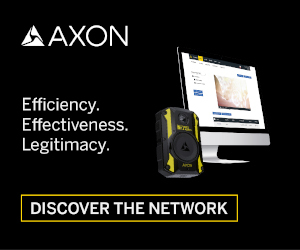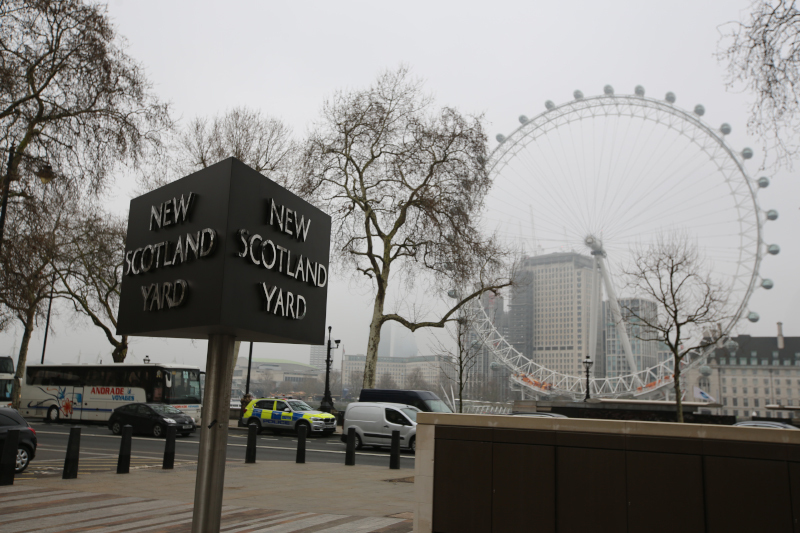About the Metropolitan Police Service (MPS)
London’s Metropolitan Police Service (MPS) is one of the largest police forces in the world, with more than 31,000 officers working across 620 square miles to protect 7.2 million people. The MPS is the world’s largest user of Axon body-worn video (BWV) technology today with over 22,000 cameras in operation. The MPS was one of the earliest UK Forces accredited by the Surveillance Camera Commissioner and was the first UK force to digitally share evidence with the Crown Prosecution Service (CPS).
Overview of MPS’ digital evidence management with Axon
The MPS manages and digitally shares its BWV evidence using Axon’s Axon Evidence platform by integrating into the MPS’s digital case file system called COPA (Case Overview and Preparation Application). All MPS BWV footage is securely stored on the Microsoft Azure Cloud.
Integrating Axon Evidence in our digital case files provides us with the safest and most secure system we have seen to date.”
Justina Brown, MPS BWV team
Officers can truncate clips, make simple redactions and tag evidence with a few simple clicks enabling the CPS to make quick and informed decisions. Officers are able to set the access permissions for who can view and download the digital evidence, enabling the CPS to onward share with the defence and enable playback in court using click-share on a variety of devices.
Thanks to Axon Evidence, the process of sharing BWV evidence with the CPS is seamless, secure and is speeding up Criminal Justice for all. Justina Brown from the MPS’s BWV team said, “Integrating Axon Evidence in our digital case files provides us with the safest and most secure system we have seen to date.”
Their usage has only grown – the MPS have gone from successfully sharing over 5,500 clips a month to the CPS using Axon Evidence in 2018 to 30,000 clips a month as of 2022.
Business challenges
Previously, officers had to burn evidence to discs before delivering them to the CPS via courier, which was cost and resource intensive. This method posed many challenges including poor security, the risk of losing data, and the lack of effective audit trails.
Officers had to burn a minimum of three DVDs for each separate piece of evidence, meaning if the incident was captured by a CCTV camera, a dashboard camera and a body camera, the officer had a total of at least nine DVDs for a single incident. The MPS weren’t the only ones facing these challenges — in fact, the majority of forces today are still using this method of sharing.
Solution
Axon, in partnership with Microsoft, has enabled the MPS to share BWV with the CPS securely by supplying a software-as-a-service (SaaS) solution within the Cloud. The shift away from cumbersome legacy systems in turn has provided the MPS with substantial cost/resource savings. The MPS and the CPS are now able to effectively share BWV evidence allowing both agencies to do their jobs more efficiently.
Results – how has CPS sharing helped the MPS?
“Axon’s body-worn camera is by far one of the most popular pieces of technology that a Met officer carries with them today.”, said Superintendent Ade Hutchinson from the MPS. From initial deployment there has been a significant downward trend related to negative interactions between the public and uniform officers in enforcement/arrest scenarios. Officers are now recording upwards of 84% of all stop and search interactions on BWV.
Axon’s body-worn camera is by far one of the most popular pieces of technology that a Met officer carries with them today.”
Supt Ade Hutchinson, MPS
Early indications are that the MPS is seeing an increase in early guilty pleas after video evidence is shared with suspects in interview. This not only saves on court costs but also helps keep officers on the streets of London. Whilst it’s difficult to put a value on the actual amount of cost savings, having BWV cameras and CPS sharing capabilities through Axon Evidence has both contributed to a reduction of complaints by over 20% and drastically increased the confidence of police officers in performing their role without the fear of malicious allegations. Additionally, early indications are that when a BWV camera has been used in an investigation, 43% of those cases end in positive criminal justice outcomes (i.e. charge, caution or first instance harassment warnings). As outlined, the legacy approach of burning multiple DVDs per single piece of evidence carried many risks and would have come at a huge cost to the MPS. Now with the current method of sharing, the MPS achieved 93% standard of compliance with the CPS success criteria requirements during the initial roll out period. This criteria included officers sharing the correct length of clips, the right links and selecting the appropriate onwards sharing permissions.
Axon and Microsoft as corporate partners are ensuring organisations are secure and that digital evidence can be shared in a safe and cost effective manner. With over three million video clips of digital evidence recorded so far (retaining approximately one million clips for evidential and policing purposes), the MPS now regularly share approximately 30,000 digital evidence clips per month with the CPS, not only saving on time and costs but paving the way for increased transparency and accountability for both police officers and the public.
Conclusion
 The MPS chose Axon and Microsoft as its partners because the organisations are committed to the highest level of security, with both the technology and the dedicated experts to ensure sensitive information stays safe. For Superintendent Ade Hutchinson at the MPS, the choice was clear:
The MPS chose Axon and Microsoft as its partners because the organisations are committed to the highest level of security, with both the technology and the dedicated experts to ensure sensitive information stays safe. For Superintendent Ade Hutchinson at the MPS, the choice was clear:
“Axon and Microsoft are both world leading companies, security is their business and they have a proven track record in protecting their client’s data.” Ade Hutchinson, Superintendent, Metropolitan Police Service
The ease of use of Axon Evidence and cloud-based storage has helped police officers to be more efficient, enabling them to focus more time on serving their communities.
Visit uk.axon.com/products/axon-evidence to learn more.


